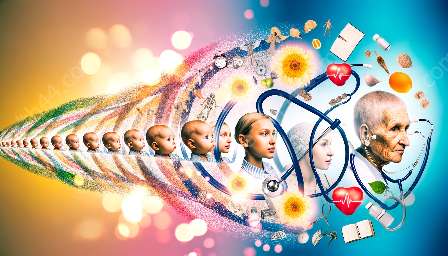Embarking on the journey of life, prenatal development is a miraculous and complex process that lays the foundation for an individual's entire lifespan. This article dives into the various aspects of prenatal development, linking it with lifespan development and its implications in health education and medical training.
The Beginnings: Conception and Early Development
Prenatal development unfolds from the very moment of conception, when a sperm fertilizes an egg, creating a single-celled zygote. This marks the initiation of a remarkable journey that will eventually lead to the birth of a baby. The zygote undergoes rapid cell division, forming a blastocyst, which implants itself in the uterine wall. Over the next few weeks, the embryonic stage begins, and the basic structures of the body start to develop.
Stages of Prenatal Development
Prenatal development can be divided into three main stages: the germinal stage, the embryonic stage, and the fetal stage. The germinal stage encompasses the first two weeks after conception, during which the zygote undergoes rapid cell division. The embryonic stage, spanning from the third to the eighth week, is characterized by the development of major organs and bodily systems. Finally, the fetal stage, from the ninth week until birth, involves the continued growth and maturation of the organs and systems.
Environmental Influences and Prenatal Development
Environmental factors play a crucial role in influencing prenatal development. The mother's lifestyle choices, such as nutrition, exposure to toxins, and stress levels, can impact the well-being of the developing fetus. Additionally, external factors like the mother's overall health, genetic predispositions, and access to prenatal care also contribute to the prenatal environment.
Implications for Lifespan Development
Prenatal development significantly influences an individual's lifespan development. The experiences and exposures during the prenatal period can have long-lasting effects on physical, cognitive, and emotional development. They can also influence susceptibility to certain health conditions and diseases later in life, highlighting the interconnectedness of prenatal and lifespan development.
Medical Aspects and Health Education
From a medical perspective, understanding prenatal development is essential for healthcare professionals, particularly obstetricians, pediatricians, and genetic counselors. It enables them to monitor the progress of the pregnancy, identify potential risks or complications, and provide anticipatory guidance to expectant parents. Moreover, incorporating information about prenatal development into health education programs can empower individuals to make informed decisions about their reproductive health and prenatal care.
Medical Training and Research Advancements
Medical training programs continually evolve to incorporate the latest findings in prenatal development. This includes advancements in techniques for prenatal screening, diagnostics, and interventions aimed at promoting healthy fetal development. Furthermore, ongoing research in the field of prenatal development contributes to a deeper understanding of prenatal influences and potential interventions, paving the way for improved healthcare practices.
Conclusion
Prenatal development serves as the cornerstone of an individual's entire lifespan, with far-reaching implications for health and well-being. Understanding the intricacies of prenatal development in the context of lifespan development and health education is vital for embracing a holistic approach to human development and healthcare. By delving into this journey from conception to birth, we gain insights that can enhance medical training, empower health education initiatives, and ultimately contribute to the well-being of future generations.


